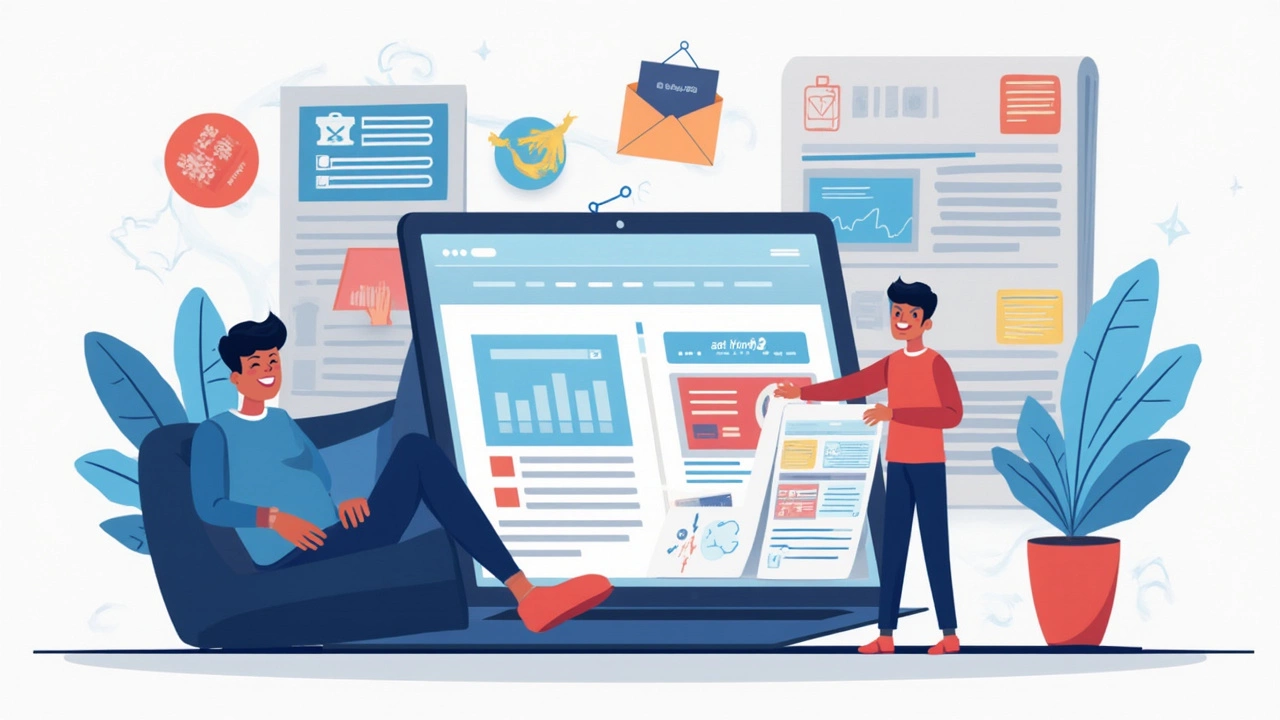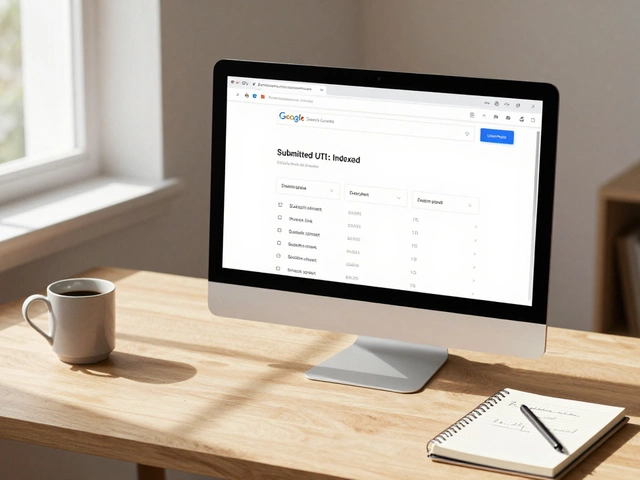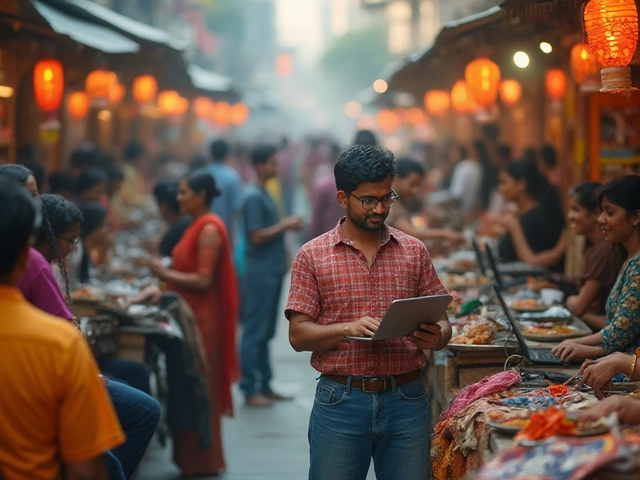Heard people say Google just loves WordPress? You’re not alone—this rumor gets thrown around in every SEO group and web developer chat, especially in India where WordPress dominates the scene. But does Google really have a soft spot for WordPress sites, or is the real story a bit more complicated?
Here’s the thing: Google doesn’t rank a site higher just because it’s built with WordPress. What Google cares about is how your site performs: how fast it loads, how easy it is to use on mobile, and how well it delivers the info people search for. Sure, WordPress gives you a solid head start with SEO—out of the box, it takes care of lots of technical stuff that can trip up newbies—but that’s not a golden ticket to the top of the search results.
If you’re running or planning a WordPress site in India, knowing what really moves the needle with Google can save you serious time and money. Let’s get into the facts, break some myths, and see what you should focus on right now to give your site the best shot at ranking high.
- The Real Story: Does Google Actually Like WordPress?
- Why So Many Indian Sites Choose WordPress
- How WordPress Themes Impact SEO
- Speed, Mobile, and Other Ranking Signals
- Tips for Making Your WordPress Site Shine on Google
- Final Take: Is WordPress a Shortcut to Better Rankings?
The Real Story: Does Google Actually Like WordPress?
Let’s clear the air: Google doesn’t give a secret boost to WordPress just because it’s WordPress. What really matters is how your site is built and maintained. John Mueller, the well-known Google Search Advocate, once said,
“Google’s algorithms don’t favor any particular content management system. Whether your site is built on WordPress, Wix, custom code, or anything else, it won’t get a ranking advantage based just on the platform.”
So why do so many popular sites use WordPress? It’s popular because it’s easy, flexible, and has loads of plugins to help with stuff like SEO, site speed, and mobile usability—the things Google actually cares about.
Check out these facts about WordPress and search results:
| Fact | Source |
|---|---|
| WordPress powers 43% of the world’s websites | W3Techs, 2025 |
| Nearly 30% of the top 1 million sites use WordPress | BuiltWith, March 2025 |
| Almost 70% of SEOs recommend WordPress for easy optimization | SEJ Survey, 2024 |
These numbers show why you see so many WordPress sites ranking well, but it’s not because the WordPress label is magic. It’s because the platform helps people set up sites that meet Google’s real requirements: speed, mobile readiness, structured data, and quality content.
If you’re hoping Google will reward you for the tech underneath, think again. It rewards the experience you deliver, not what you built it on. Think of WordPress as a tool—super helpful, but only as good as what you do with it.
Why So Many Indian Sites Choose WordPress
Walk around the Indian web scene and you’ll see WordPress everywhere—from news outlets to neighborhood shops selling chai online. There’s a reason for this. WordPress doesn’t just make building a site possible for non-techies, it makes it affordable and scalable for small businesses, bloggers, and even big brands.
Cost is a huge factor. Hiring a developer to custom-build a site in India can run up a pretty hefty bill, but with WordPress, you can launch a site with just the cost of a domain, hosting, and maybe a premium theme. Even big government sites like the Kerala Tourism Portal and private players like NDTV Food use WordPress as their platform. It’s not just for hobby blogs anymore.
Another reason is flexibility. Want a local language site for Hindi, Tamil, or Bengali readers? WordPress handles multilingual plugins and local fonts easily. Need ecommerce? Plugins like WooCommerce have exploded in popularity among Indian shop owners going online—spurred even more since 2020’s rush to digital business.
Here’s how WordPress stacks up against other popular platforms in India, based on usage stats from the last year:
| Platform | % of Indian Websites |
|---|---|
| WordPress | 44% |
| Wix | 8% |
| Shopify | 5% |
| Joomla | 2% |
| Others/Custom | 41% |
Let’s not forget support. With so many Indian users, you’ll find loads of YouTube tutorials, Facebook groups, and even local freelancers offering cheap fixes if you get stuck. If you’re gunning for success with WordPress in India, you’re joining a community that’s both massive and super active.
How WordPress Themes Impact SEO
Picking a WordPress theme isn’t just about looks—your theme plays a big role in how your site performs in Google’s search results. Themes can speed things up or slow them down, and features baked into your theme can mess with how search engines read your pages.
A bulky or poorly coded theme can tank your page speed, and Google hates slow sites. Faster sites not only climb higher in rankings but also see lower bounce rates because people don’t bail out waiting for pages to load. According to a 2024 Web Almanac report, the average load time for sites using lightweight themes (like Astra or GeneratePress) was just 1.6 seconds, compared to 3.7 seconds for feature-heavy themes loaded with plugins. That’s a big gap.
| Theme Type | Average Load Time (seconds) | Mobile Responsiveness Issue Rate (%) |
|---|---|---|
| Lightweight (Astra, GeneratePress) | 1.6 | 4 |
| Multipurpose (Avada, Divi) | 3.2 | 11 |
| Free Default (Twenty Twenty-Four) | 2.2 | 2 |
SEO isn’t just about speed, either. Your theme controls heading structure, internal linking, and mobile-friendliness. If your navigation is a mess or your blog titles appear in tiny fonts, Google struggles to understand your page. A 2023 survey from WP Beginner showed that 68% of users who switched to SEO-focused themes reported higher rankings in under six months.
So, what should you look for? Here’s a quick checklist when choosing a theme for WordPress:
- Go for themes that advertise SEO optimization and lightweight code.
- Stick with themes that are regularly updated and compatible with top SEO plugins.
- Always test demos for mobile responsiveness—run the theme demo through Google’s Mobile-Friendly Test tool.
- Avoid themes loaded with too many extra features or bundled plugins you don’t need.
- Check reviews to spot issues like poor coding or bad support.
Your theme is the backbone of your site’s structure. Choosing wisely pays off not just in good looks, but in real gains on Google. Don’t treat theme selection like an afterthought—you’ll thank yourself when your pages start climbing up the search results.

Speed, Mobile, and Other Ranking Signals
If you want Google to notice your WordPress site, you have to get the technical basics right. Site speed comes first. According to Google's own research, over half of mobile users bounce if a page takes longer than three seconds to load. WordPress can run fast, but themes loaded with junk and heavy plugins will drag things down.
What slows down most WordPress sites in India? It's usually big, unoptimized images, too many plugins doing the same job, or picked-the-first-theme-you-saw syndrome. Good news is, you can fix this pretty easily:
- Compress your images before uploading. Tools like TinyPNG or ShortPixel make this dead simple.
- Only use the plugins you need. More isn’t better for speed. Deactivate and delete the rest.
- Choose a lightweight theme that doesn’t load everything under the sun. Test it with Google's PageSpeed Insights before going live.
Now, about mobile: Google switched to mobile-first indexing a while back. That means the mobile version of your site is what Google looks at to decide your rankings. A clunky desktop design doesn’t save you anymore. Pick a WordPress theme that’s mobile-friendly out of the box and test it on a real smartphone, not just your laptop.
Other big signals Google watches:
- HTTPS: If you’re not on SSL yet, do it. Browsers even warn users now if a site isn’t secure.
- Structured data: WordPress plugins like Yoast SEO or Rank Math make this easier, helping Google get your site info right in search results.
- Clean URLs: Skip the weird numbers; use post names in your permalink settings. Looks better, ranks better.
The bottom line is, Google doesn’t care about your code, it cares about how users experience your site. So, focus on speed and a great mobile experience. For WordPress sites, that means thinking lean, not loading up your site until it groans. It’s small tweaks like these that push real results in search.
Tips for Making Your WordPress Site Shine on Google
If you want your WordPress website to actually stand out in Google search, there’s no secret magic — it all comes down to a few practical steps. You don’t need to be a tech prodigy. Just focus on the basics that Google’s algorithm really likes.
SEO should be your main target from day one. Start with a solid SEO plugin: Yoast SEO and Rank Math are favorites for Indian WordPress users. Both handle titles, meta tags, sitemaps, and let you tweak how your site looks in the search results. That’s crucial because even a small mistake here can mess with your Google ranking.
- Pick a fast WordPress theme. Indian internet isn’t always blazing fast, so a bloated theme will hurt your rankings. Themes like Astra and GeneratePress are simple, quick to load, and still look professional.
- Make your site mobile-friendly. More than 80% of Indian web traffic comes from phones, and Google pushes mobile sites to the top. Test how your site looks and works on a small screen — Google’s Mobile-Friendly Test tool is free and easy to use.
- Don’t skip image optimization. Huge images slow down your site like nothing else. Compress them with free plugins like ShortPixel or Smush. Also, always add descriptive alt text — this helps Google "see" your images and could land you traffic from Google Images.
- Improve loading speeds. Everyone hates slow sites. Use caching plugins (like WP Rocket or W3 Total Cache), pick a good host (avoid the cheapest options), and regularly clean out unused plugins or themes.
- Stick to clean URLs. Set your WordPress permalink structure to “Post name” — nobody wants to see a URL like /?p=123. It’s easier for Google and humans to understand.
- Update content often. Google loves fresh stuff. Revamp old blog posts, add new info, and target specific local keywords — for example, if your business is in Mumbai, use city-related phrases where they fit naturally.
If you want a bit more insight, John Mueller from Google said,
"WordPress automatically takes care of a lot of SEO issues... but just using WordPress won’t make your site rank automatically. Good content and user experience are still king."
That’s as clear as it gets. Focus on giving readers a smooth experience and info they actually want. Nail the technical basics, use helpful plugins, and don’t try to game the system. That’s how you give your WordPress site a real shot at climbing the Google ranks.
Final Take: Is WordPress a Shortcut to Better Rankings?
A lot of people dream that switching to WordPress will automatically rocket their website to the top of Google. The short answer? WordPress makes life easier, but it’s not a magic SEO button.
WordPress does cover a lot of the basics that Google cares about. You get clean code, easy-to-manage URLs, quick integration with SEO plugins, and a structure that Google’s bots can easily crawl. That’s why over 43% of all websites run on WordPress, not just in India, but everywhere. But here’s where things get real—just having a WordPress site isn’t enough. What you do with it matters more.
If you grab any random theme, overload it with flashy plugins, and ignore site speed or mobile layout, you’re actually hurting your rankings. Google rewards sites that are fast, mobile-friendly, and deliver solid content—regardless of what platform they’re built on.
Check out how WordPress stacks up against other popular website builders in a recent survey from Google ranking experts across India:
| Platform | Avg. PageSpeed Score | Mobile-Friendliness (out of 100) | Common SEO Issues |
|---|---|---|---|
| WordPress | 82 | 89 | Heavy plugins, theme bloat |
| Wix | 69 | 76 | Limited SEO controls |
| Shopify | 75 | 84 | App conflicts |
| Custom PHP | 78 | 80 | Needs expert setup |
See? WordPress leads the pack on speed and mobile, but it comes with its own headaches too—mainly when people go overboard with plugins or pick crowded themes.
If you want your WordPress site to hit the top spots on Google, focus on what Google actually looks for:
- Use a fast, lightweight theme (avoid bloated ones, especially if they promise hundreds of features you never use).
- Limit plugins to just what you need. Every extra plugin can slow you down.
- Make sure your site looks and works great on mobile. Test on various devices regularly.
- Write content that genuinely helps your audience, not just stuffed with keywords.
- Keep your images optimized—they shouldn’t take forever to load.
So, is WordPress a shortcut? Not really. It’s a great starting line, but you still have to run the race. If you take care of the basics and keep things lean and user-focused, WordPress won’t let you down. But the real ranking gains come from consistency and smart tweaks, not platform hype.



